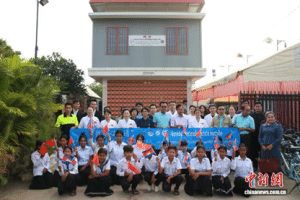As Guangdong prepares to implement a new regulation allowing social organizations to register directly with Civil Affairs departments, this article raises questions about its implementation given recent developments in the labor sector.
One development is a crackdown on several labor NGOs registered as businesses, such as Zhang Zhiru’s labor NGO, Shenzhen Chunfeng Labor Disputes Services Center. In some cases, this crackdown has taken the form of the landlord telling the NGO the lease is up. In more blatant cases, such as Shidai Women’s Labor Agency, local government agencies came to inspect the NGO and informed them they would have to close.
The other development is the creation of a Federation of Social Service Organizations for Guangdong Workers under the Guangdong All-China Federation of Trade Unions (ACFTU). The idea here seems to be to use Party-controlled “mass organizations” such as the ACFTU to create a legitimate platform for labor NGOs to provide services to workers. (This idea has also been tried in Beijing but so far with little success.) In turn, the ACFTU will have a hand in supporting and supervising these NGOs. This arrangement is described as an intermediate step for labor NGOs to gain some form of legal recognition (in Chinese, the term used is bei’an or document filing system) that may eventually help them gain legal registration. But it might also be seen as a way for the state to coopt labor NGOs.
Labor NGOs in China have generally been seen as more sensitive and observers questioned whether they would be treated the same way as less sensitive NGOs and allowed to register directly under the new Guangdong regulations. These new developments suggest that local authorities may be trying to push labor NGOs into a more regulated, supervised space.
According to Zhu Jiangang, founder and director of the Institute for Civil Society Studies at Sun Yatsen University, it is better in the long term for both the government and NGOs for the latter to be registered and regulated. Before it was “difficult to get in the door, but lax supervision afterwards”. Now with the new regulations promoting direct registration, the idea is to make it “easy to get in the door, but stricter supervision afterwards.”
Click here for the full article in Chinese.



